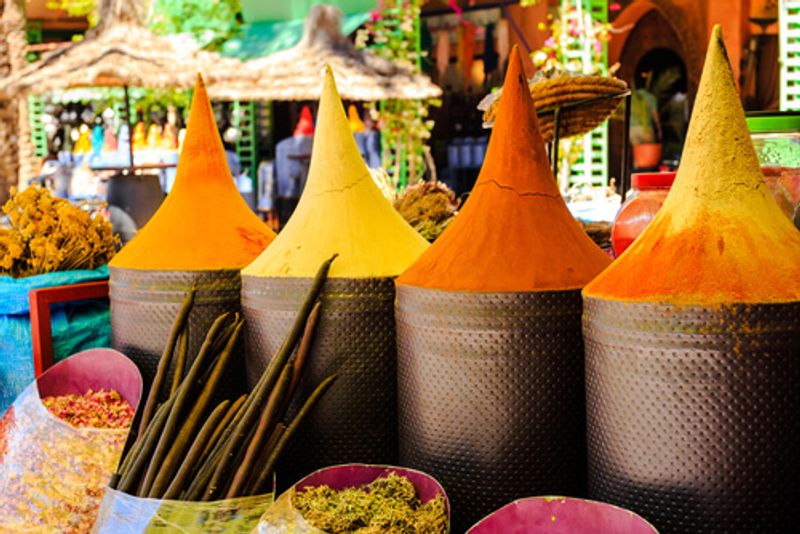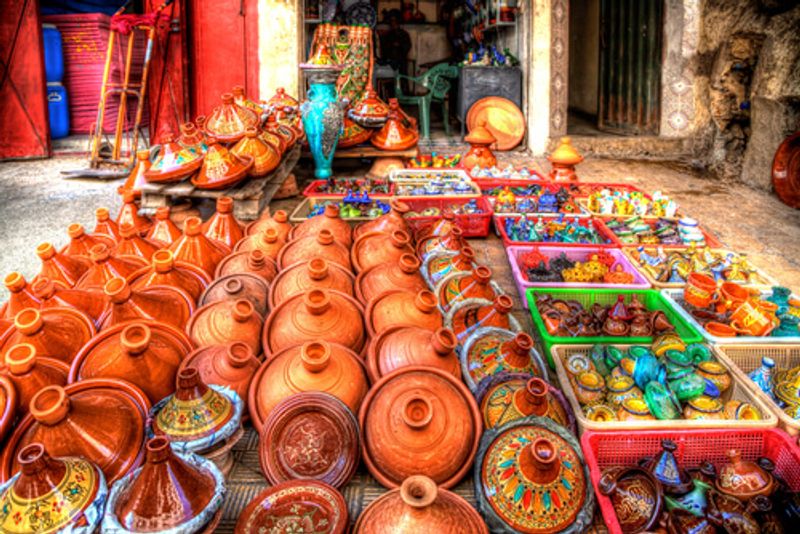From bustling medinas to modern art, Morocco’s cultural capital is where old and new collide
At the mention of Morocco, minds drift to Marrakech, the vast Sahara and the infamous film, Casablanca. But it is the northern city of Fes which has long been considered the country’s cultural and spiritual heart – and it’s only beginning to make its mark on the tourist circuit. Founded in the 8th century, Fes is home to the world’s oldest university and the largest car-free urban area. Its streets are labyrinthine, twisting and curving around souks and towering mosques that seem to materialise out of nowhere. Jam-packed with architectural marvels, UNESCO sites and a growing culinary scene, this ancient city is a haven for inspired explorers.
Fes is the oldest of Morocco’s four imperial capitals, having served as the country’s political centre as recently as the early 20th century. Its origins date back to the late 1700s and the Idrīsid dynasty, thought to be the descendants of the prophet Muhammad. Upon Idrīs I’s arrival in the region, he commenced construction on the UNESCO-listed Fes el-Bali (old medina). When he died, his son built a second city, the Fes el-Jdid (new Medina), on the opposite bank of the Wadi Fes river. The two settlements functioned separately until the 11th century when the Almoravid empire unified them to create one sprawling hub of Islamic learning. The city’s third part, the Ville Nouvelle (new town) was built during the French occupation of Morocco.
Be sure to pack your walking shoes, because the best way to experience Fes is on foot. Step through the towering bab boujloud (blue gate) into Fes el-Bali and you’ll be greeted with a myriad of sounds, sights and smells straight out of medieval Morocco. Getting lost is common and encouraged. With 9,500 alleys winding through the old medina, you never know what will be around the next corner. Stop for photos in front of the famed golden gates of the Royal Palace and when hunger calls, dip into a restaurant for a mint tea and some brochettes (skewers) cooked to perfection.
Ville Nouvelle is a stark contrast to the bustling old medinas. With its bright, art-deco buildings and cafe culture, it resembles a bustling Parisian street scene. While most tourists are enthralled by the history of el-Bali, Ville Nouvelle is where Fes’ contemporary art scene comes to life and is where the city’s trendiest new hotels can be found.
The UNESCO listed Chouara tannery is one of the biggest attractions in Fes. Arm yourself with mint leaves to mask the smell and watch as animal skins are treated, scraped and dipped in vats of vibrant dye. The best views are from the terraces of local leather shops and, for a small tip, shop attendants will talk you through the process unfolding below. Fes is world-renowned for its leather and those who can stomach the stench will be delighted by a practice unchanged for centuries.
For architecture fiends, the city’s mosques are sure to beguile. The largest is Qarawiyyin, which accommodates up to 20,000 worshippers, and is recognised as the oldest university in the world. Qarawiyyin’s architecture is iconically Moroccan, with outrepassé (horseshoe) arches and hand-painted zellige tiles covering the walls. While the mosque isn’t open to non-muslim visitors, its exterior is well worth the trip.

